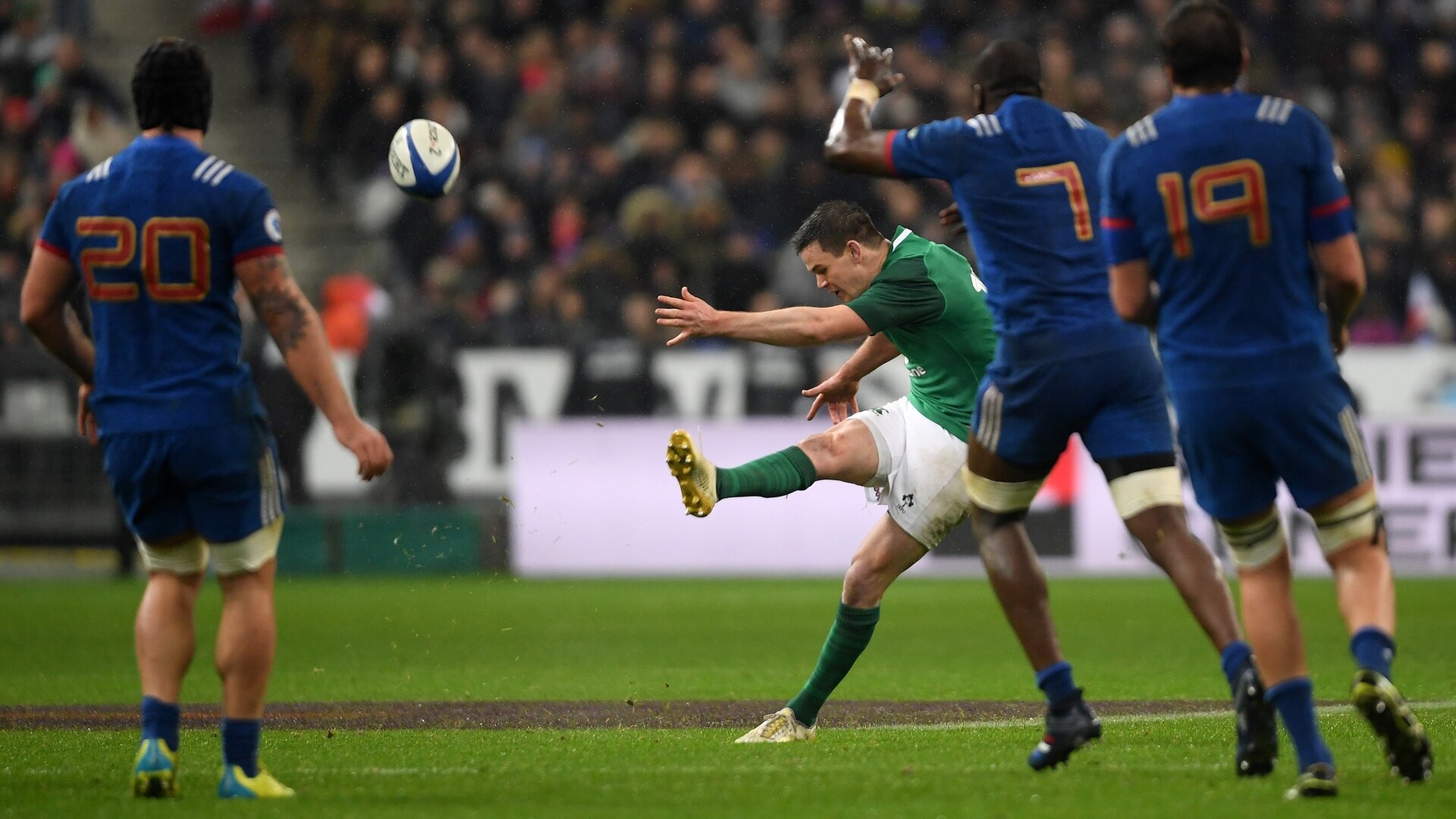Pre-match analysis - Ireland vs France

It’s time for the real Ireland to stand up if they are to take their Six Nations title defence to the last day of the championship. Their RugbyPass Index ranking of 84 massively eclipses France’s 69, but the last few weeks have been difficult for Joe Schmidt’s side and a sharp reminder how fickle confidence in sport can be.
From champs to chumps in the space of 15 weeks is quite a remarkable chain of events, but this fixture offers the Irish to chance to rekindle the brio that left New Zealand departing Dublin shaken and stirred in November.
Fleetingly upsetting the established world order was no mean feat and good players don’t become bad overnight. However, three poor performances in succession is two too many and the rot must stop now.
The start will be critical. Both sides – France (33.3%) and Ireland (32.4%) – have scored more of their 2019 points in the opening 20 minutes than in any other 20-minute segment.
If the French survive this expected lively start, another trend to watch being updated is how the Irish have conceded 30 of their 61 points (49.2%) in the 20 minutes before half-time.
(Continue reading below…)
Ireland enter round four having scored nine tries to France’s seven. The Irish have used the lineout to score five of these scores and with the partnership of James Ryan/Iain Henderson back in harness for the first time this year, it’s an area of strength they will certainly continue to rely on.
The main French source of scoring threat is counter attack – it’s certainly not their place kicking where they are running at a miserly 42.9% success rate.
Three tries have been foraged off turnover ball and in Wenceslas Lauret they have a blindside who has accounted for four of his team’s eight championship breakdown steals. Ireland have managed just two, both by Peter O’Mahony in a back row that has lacked balance and sharpness.
Here's the Ireland team to play France on Sunday.#TeamOfUs #IREvFRA #ShoulderToShoulder pic.twitter.com/KTzjMrC0iM
— Irish Rugby (@IrishRugby) March 8, 2019
That unit will need to be more clinical on Sunday to neutralise the physicality of the French, who top the championship off-loading chart with 48 compared to Ireland’s tiny nine.
Shutting down that aspect of the visitors’ game will be important. The last thing the brittle Irish will want is France, who have won just two of their last 11 away games in the Six Nations (both against Italy), suddenly believing they have more than a sniff at causing an upset.
COACHES
Here are two operators with different issues to fix. Schmidt’s stuttering Ireland are trying to press the accelerator with the handbrake on whereas Jacques Brunel’s France are behaving like an unhappy outfit that senses the writing is on the wall for a management that have failed to fire since its sudden accession to power a year ago.
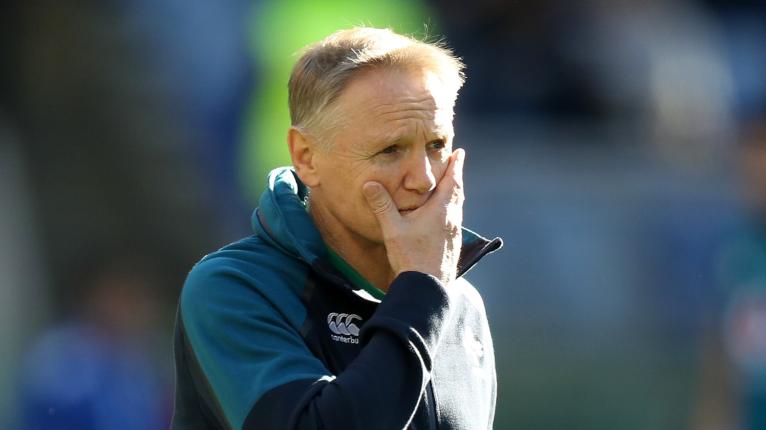
The curiosity is the role reversal surrounding this particular game. Schmidt, a selector who traditionally likes his consistency, has made seven changes, six to his starting pack, in reaction to a run of lacklustre form not experienced since February 2016.
In contrast, France, who have liberally chopped and changed all though Brunel’s reign, come into the fixture with the rare luxury of making not a single change to their 23 which partially clicked when beating Scotland.
Schmidt, with 48 of his 65 matches in charge (74.6%), has a couple of immediate fixes to make. Ireland need territory as they played far too much of February in their own half.
☘️🇫🇷 Voici le composition de votre #XVdeFrance pour aller défier dimanche, l'Irlande, à Dublin ! #IRLFRA #NeFaisonsXV pic.twitter.com/9qzyvB9Uww
— France Rugby (@FranceRugby) March 5, 2019
He also needs to deploy some greater attacking cunning than previously as his Ireland teams have been held try-less in three of six outings against France with the New Zealander in charge. That’s quite a blemish for a coach lauded for creative prowess.
Meanwhile, Brunel’s visit to Dublin will remind the French coach how small margins can be devastating. His record in charge is a low 28.5% success rate (four wins in 14) and it must surely bother him still that life could be very different now but for Johnny Sexton’s win-stealing drop goal 13 months ago in Paris as the outset of his reign.
A win that first night could have changed everything for Brunel. Instead, he looks a dead man walking.
PLAYERS
Rory Best (85) v Guilhem Guirado (84)
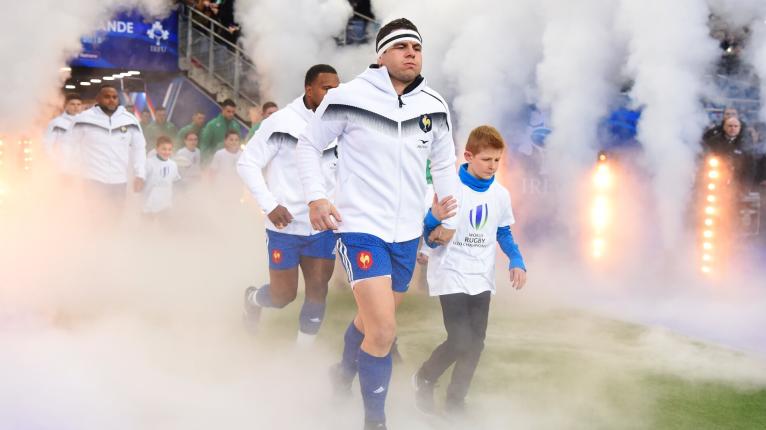
This should be tasty, a meaty clash between the 11th and 12th ranked hookers in the world according to the RPI. Best has the slight edge. His scrum score is 80 to 69, his jackal 81 to 79. They’re rated with a lineout score of 86 each, but Guirado shades the influence rating 80 to 78. There was a campaign in Ireland last month to not only remove the captaincy from Best but to also get him out of the starting side. However, that gripe backfired. Ireland’s lineout was a mess in Rome when he was rested the last day. With the pack also appearing cumbersome and slow, Best’s exclusion only reinforced his importance to Schmidt’s Ireland and he will be the skipper for Japan 2019. Guirado is a similarly criticised character. It’s only when he is not there that his immense value to France becomes so apparent.
Tadhg Furlong (92) v Demba Bamba (64)
This is no contest if the RPI is on the money. The No1 tighthead in the world versus a young No3 ranked 117th best. It’s the scrum score where Furlong holds a significant advantage, 82 to 61. Ireland’s front row have conceded just two scrum penalties to France’s six in the 2019 championship, and Bamba has conceded four of his team’s overall total of 22 penalties. That’s a sign of inexperience showing. Furlong, who checks in as Ireland’s leading ball carrier with 34, also hugely eclipses Bamba in the lineout score, 89 to 70. These numbers suggest the French apprentice has it all to do to maker a positive impression compared to an operator whose extremely high standards were the cornerstone of Ireland’s stellar 2018.
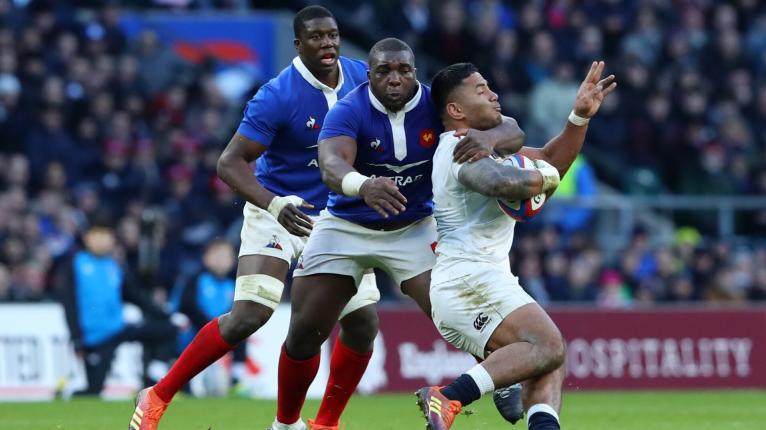
James Ryan (92) v Sébastien Vahaamahina (82)
Another belter of a head-to-head. Ryan is rated RPI’s No1 lock in the No4 shirt while Vahaamahina is listed as the 14th best No5 lock. With Henderson back in the row, it means a switch to tighthead scrummaging for Ryan whose lineout numbers are stronger than his opponent’s – 87-82 take, 91-84 steal. Although rested versus Italy, Ryan has been one of the few consistencies in this Irish campaign as his earlier performances were exemplary in positively getting across the gain line and securing much-needed hard yards for a pack that has smudged its 2018 sheen. Vahaamahina’s most memorable moment last month was a negative, incredulously throwing that rash pass in Paris which invited George North to gobble up an intercept and win the opening round encounter for Wales.
CJ Stander (92) v Louis Picamoles (81)
RPI has Stander installed as the world’s third best No8, a ranking 13 places higher than Picamoles who enters round four as the championship’s leading ball carrier with 44. That sounds impressive. However, when you factor in the RPI pass completion rate of just 29 compared to Stander’s 82, you know which talisman you’d prefer to have alongside you in the trenches. Stander also shades the influence assessment – 76 to 66, and has a better scrum score – 76 to 62. What leaves the adopted Irishman down, however, is his limited attacking, rated at just 70 compared to Picamoles’ 89. Stander’s issue is he forever seeks out confrontation rather than elude it and it’s where he gets bogged down. Back in the side following injury against England, he needs to make ground here and not be mown down in traffic.
Johnny Sexton (91) v Romain Ntamack (85)
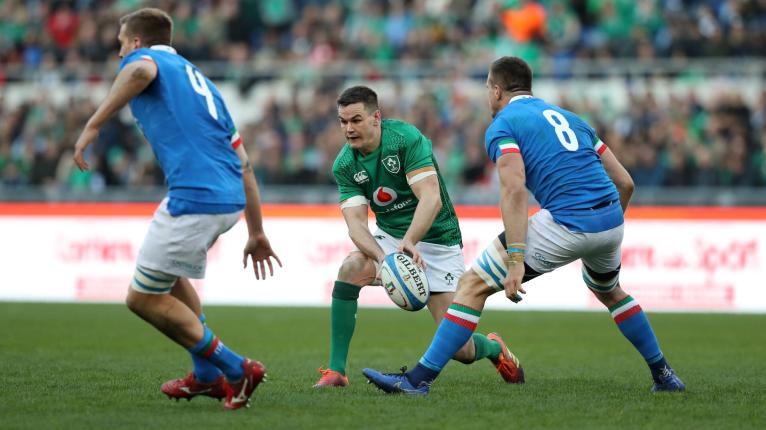
Sunday afternoon’s most intriguing one-on-one. This match-up of RPI No 4 out-half versus the No12 rank catches the eye due to veteran Sexton’s Mr Angry behaviour last month and Ntamack’s youthful poise to generate something out of nothing. The 2018 World Player of the Year simply didn’t cut the February mustard as Ireland stumbled from one clanger to the next. Instead of being a beacon of composure whose deeds generated assurance, his crankiness spread like a virus and his form was shaded by Ntamack’s. RPI influence was 71-79 to the French play-maker. So too attacking, 68-78. These figures show how quickly things can change, so the onus is very much on the the struggling Sexton to get back down to business and get misfiring Ireland firing again.
KEY BATTLEGROUNDS
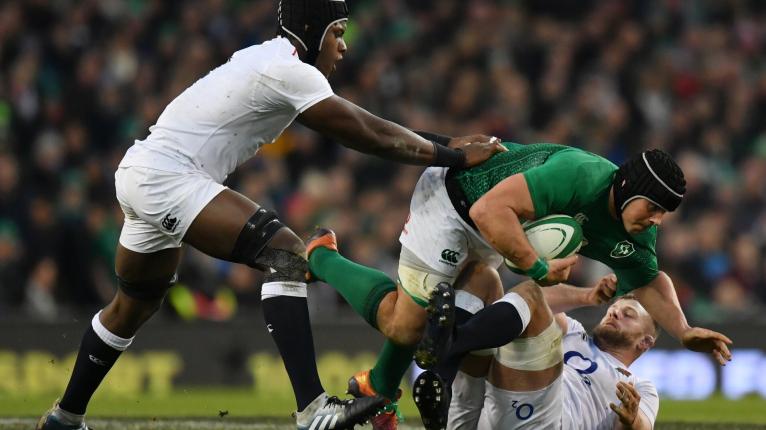
This contest is all about the breakdown. Ireland have a quicker ruck recycle speed than France but that has been largely negligible in helping them to pull out an acceptable performance. Beaten up by England, their back row hasn’t yet rediscovered the poise and punch it delivered all through last year. Schmidt got it wrong last month placing faith in Sean O’Brien to quickly shake off his latest injury rustiness and it left Ireland struggling to break the gain line. Stander’s return from injury is designed to rectify that issue, but if you go on his last game – the dour effort versus England – he has a lot to do to be on top of his game. France will bring nuisance value and the longer they feel they are in with a chance, the more mischievous they will try to be. It’s up to the Irish back row to dominate the collisions and ensure winning momentum is secured there from an early juncture. If not, this will be quite a slog.
CONCLUSION
There is quiet confidence in France that they have turned a corner in beating Scotland the last day. However, the last time they tried to stitch back-to-back wins together, they embarrassingly fell flat on their faces and lost to Fiji in November. If Ireland can get into them early they can instil doubt and cause a few French heads to drop. That is the key to whether this will be a comfortable home win or another endurance test.
Could there possibly be this much drama on Sunday? 🤔 #IREvFRA #GuinnessSixNations pic.twitter.com/R3aow9PSA4
— Guinness Men's Six Nations (@SixNationsRugby) March 8, 2019
Schmidt’s Ireland may have won five of its six matches against the French, but the Kiwi has mostly struggled to really break them down as the winning margins have been only two, seven, 15 at the World Cup, 10 and two points. This is despite the general consensus that this is a golden era for Ireland and a time of multiple underwhelming black marks for the French.
Ireland will want to clinch this win with some degree of comfort as the six-day turnaround in the Six Nations is notoriously problematic. The last thing their title challenge needs is a close run like last year in Paris heading to Wales next weekend. A quick start would surely be decisive, but the way they played in February suggests they might not have it in them. Ireland will win, but this could be far tighter a result than some Irish people are predicting.























